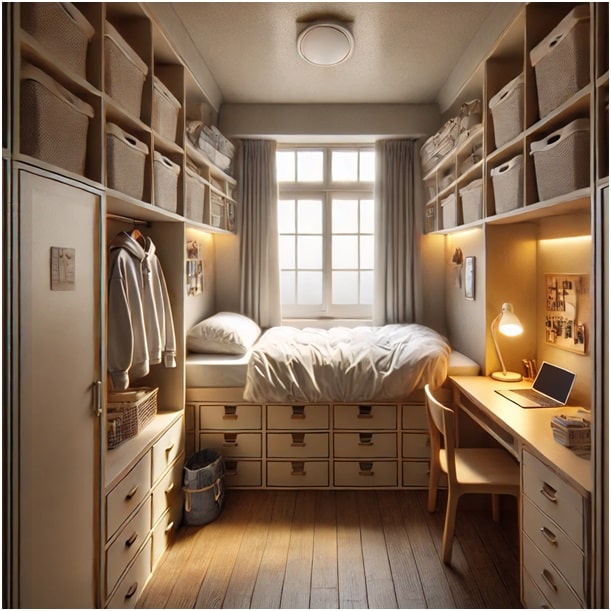Housing for Students in College: A Comprehensive Guide for UWEC Students and Parents
Choosing the right housing option is a crucial decision for college students and their families. For those attending the University of Wisconsin-Eau Claire (UWEC), there are several factors to consider when weighing on-campus and off-campus living arrangements. This article will explore various housing options, compare costs, and discuss important considerations to help UWEC students and their parents make an informed decision.

On-Campus Housing Options
UWEC offers several on-campus housing options for students, primarily in the form of residence halls. According to the official UWEC housing rates page (https://www.uwec.edu/campus-life/housing-dining/housing/rates/), the university provides different room types to accommodate various preferences and budgets.
-
Traditional Residence Halls: These halls typically offer double rooms with shared bathrooms on each floor. They are often the most affordable option and provide a classic college experience.
-
Suite-Style Halls: Some residence halls offer suite-style living, where a small group of students share a common living area and bathroom facilities.
-
Apartment-Style Halls: For upper-class students, there are apartment-style options with private bedrooms, shared living spaces, and kitchenettes.
On-Campus Housing Costs
For the 2023-2024 academic year, UWEC's on-campus housing rates are as follows:
-
Double Room: $4,730 per academic year
-
Single Room: $6,590 per academic year
-
Suite-Style Double: $5,510 per academic year
-
Suite-Style Single: $7,370 per academic year
-
Apartment-Style: $7,040 per academic year
It's important to note that these rates are for a 9-month academic year, typically spanning from late August to mid-May.
Meal Plans
On-campus living often comes with the requirement to purchase a meal plan. UWEC offers several meal plan options to cater to different dietary needs and preferences. While meal plans add to the overall cost of on-campus living, they provide convenience and ensure students have access to regular, balanced meals.
According to the UWEC Dining Services website, meal plan costs for the 2023-2024 academic year range from approximately $1,600 to $2,200 per semester, depending on the chosen plan [1].

Off-Campus Housing Options
Many UWEC students choose to live off-campus, especially after their first year. Off-campus housing options include:
-
Apartments
-
Houses for rent
-
Shared living arrangements
Off-Campus Housing Costs
The cost of off-campus housing can vary significantly depending on location, size, and amenities. According to RentCafe, the average rent for an apartment in Eau Claire, WI is $1,022 as of 2023 [2]. However, students can often find more affordable options by sharing accommodations or looking for student-specific housing.
Comparing 9-Month vs. 12-Month Leases
One significant difference between on-campus and off-campus housing is the lease duration. On-campus housing typically follows the 9-month academic calendar, while off-campus rentals usually require 12-month leases.
Pros of 9-month on-campus leases:
-
Aligned with academic schedule
-
No need to pay for summer months if not staying
-
Easier to accommodate study abroad or internship opportunities
Pros of 12-month off-campus leases:
-
Often lower monthly rent
-
Ability to stay during summer for work or classes
-
More independence and privacy
Summer Subletting
For students with 12-month leases who won't be staying in Eau Claire during the summer, subletting can be a viable option. Subletting involves renting out your apartment to another person for a portion of your lease term.
Considerations for subletting:
-
Check if your lease allows subletting
-
Find a reliable subletter through UWEC student groups or local websites
-
Create a formal sublease agreement
-
Understand your responsibilities as the primary leaseholder
Parking
Parking is an important consideration for students with vehicles. On-campus parking is available but limited and comes at an additional cost. According to the UWEC Parking and Transportation Services, annual parking permits for residence hall lots range from $300 to $400 [3].
Off-campus housing may offer free parking, but this varies by property. Students should factor in parking costs when comparing housing options, especially if they plan to bring a car to campus.

Distance from Campus
The proximity to campus can significantly impact a student's daily life and budget. On-campus housing provides the convenience of being close to classes, libraries, and campus facilities. Off-campus housing may require additional transportation considerations:
-
Walking distance: Ideal for properties within a mile of campus
-
Biking: A popular option for students living within a few miles of campus
-
Public transportation: Eau Claire Transit offers free bus services for UWEC students [4]
-
Driving: Consider fuel and parking costs if living further from campus
Additional Responsibilities of Off-Campus Living
While off-campus housing often provides more independence, it also comes with additional responsibilities:
-
Cleaning: Students are responsible for maintaining their living space, which includes regular cleaning and occasional deep cleaning.
-
Cooking: Without a meal plan, students need to budget for groceries and prepare their own meals. This can be more time-consuming but may lead to cost savings and healthier eating habits.
-
Utilities: Off-campus residents typically need to set up and pay for utilities separately. These may include:
-
Electricity
-
Gas
-
Water/Sewer
-
Internet
-
Cable TV (if desired)
-
According to the U.S. Energy Information Administration, the average monthly electricity bill in Wisconsin is around $95 [5]. Other utilities can add $100-$200 or more to monthly expenses, depending on usage and the number of roommates.

Comparing Total Costs
To get a clear picture of the financial implications, let's compare the estimated costs of on-campus vs. off-campus living for an academic year:
On-Campus (9 months):
-
Double Shared Room: $4,730
-
Suite-Style Single Room: $7,370
-
Meal Plan (average): $3,800
-
Parking (if needed & limited): $400. Total: Approximately $8,980 - $11,570
Off-Campus (12 months):
-
Rent ($500/month private room with roommates): $6,000
-
Utilities ($150/month shared with roommates): $1,800
-
Food ($300/month): $3,600
-
Parking: Often included. Total: Approximately $11,400
While the off-campus total can be higher, remember that it covers 12 months instead of 9, and costs can be reduced through careful budgeting and shared expenses with roommates.
Making the Decision
Choosing between on-campus and off-campus housing depends on various factors:
-
Budget: Consider your overall financial situation and available resources.
-
Lifestyle preferences: Decide if you prefer the structured environment of on-campus living or the independence of off-campus arrangements.
-
Academic goals: Consider which option best supports your studies and campus involvement.
-
Transportation needs: Factor in the costs and convenience of getting to and from campus.
-
Social preferences: Think about the type of community you want to be part of during your college years.
Conclusion
Both on-campus and off-campus housing options have their advantages and challenges for UWEC students. On-campus living offers convenience and a structured environment, ideal for first-year students transitioning to college life. Off-campus housing provides more independence and can be cost-effective for those ready to take on additional responsibilities.
Ultimately, the best choice depends on individual circumstances, preferences, and goals. By carefully considering the factors outlined in this article, UWEC students and their parents can make an informed decision that best supports academic success and personal growth during the college years.
Disclaimer:
Hey there! Thanks for reading our stuff. We want you to know a few important things:
- We're General Property Management LLC, right here in good old Eau Claire, WI. You can make an appointment to visit us. Our office is located at 703 5th Avenue #1, Eau Claire, WI 54703 or send written correspondence to General Property Management, LLC, P.O. Box 283, Eau Claire, WI 54702.
- If you need to reach us, our email is contact@ec4rent.com and our phone number is 715-832-1200.
- We try our best to give you good information, but we're not lawyers. If you have a serious legal problem, it's best to talk to a real attorney.
- If you spot any mistakes in what we've written, please let us know! We'd love to fix it or take it down if needed.
- We always welcome your comments and thoughts. Your feedback helps us do better!
- Remember, when we all do our little part, the world is a better place. So let's work together to make things awesome!
References:
[1] UWEC Dining Services: https://www.uwec.edu/campus-life/housing-dining/dining/meal-plans/ [2] RentCafe - Eau Claire, WI Rental Market Trends: https://www.rentcafe.com/average-rent-market-trends/us/wi/eau-claire/ [3] UWEC Parking and Transportation Services: https://www.uwec.edu/blugold-central/parking/parking-permits/ [4] Eau Claire Transit: http://www.eauclairewi.gov/government/our-divisions/transit [5] U.S. Energy Information Administration - Wisconsin: https://www.eia.gov/state/print.php?sid=WI






